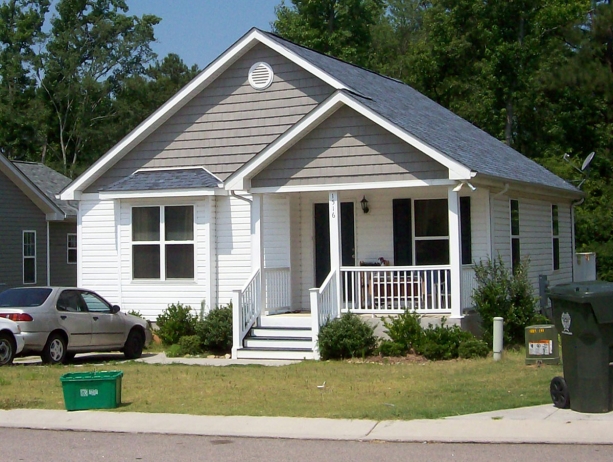When it concerns realty, the more you spend, the more cash everyone makes. And it happens on every level of your house purchase.
The costs start accumulating when you discover the perfect location. According to the National Association of Realtors, property representatives make money by taking a portion of the purchase rate of your house. In other words, the more you spend, the larger the payday. And the larger the loan, the greater the closing expenses and loaning fees tend to be –– a benefit that goes directly from your pocket to your loan providers.
In case you were questioning, this is why your realty professional may pay little attention when you inform them you only wish to invest X number of dollars on a new home. It’s not that they aren’t expert, or that they don’t care about your financial situation; it’s simply that they just stand to benefit if your spending plan creeps up a few dollars here or there.
And what’s a couple of thousand dollars between friends?
Budgeting for Your Top priorities
I know –– I have actually existed. When my spouse and I moved to a new town last year, our income certified us to invest 300% more than we planned. And even though we informed our Realtor what our objectives were, it didn’t stop her from recommending houses outside our comfort zone. In reality, I remember having a lot of discussions about it, and getting advice like this:
“You understand, for every single $1,000 you spend, your payment will just increase $16.”
“Your kids are aging –– you need a house you can become.”
“Rate of interest are so low. You can get a lot more house for your money in today’s market.”
In the end, we purchased precisely what we wanted, and actually spent less than we prepared. And it didn’t wind up that method simply since we’re inexpensive; we based our choice on our shared beliefs and objectives.
Still, the principles that steered us toward a cheaper house do not simply use to us; they might apply to your scenario, too. There are some really good arguments against borrowing as much as you potentially can. Here are some of them:
What Goes Up May Come Down
Years earlier, a lot of people believed housing rates would keep climbing for eternity. I remember my mom informing me years ago that, when she and my father bought their very first house, their Realtor pressed them to obtain as much as possible.
“The more you buy, the more appreciation you will see with time,” they were informed.
And that notion made sense at the time. After all, the land is a minimal commodity, and a growing population will always need somewhere to live. Real estate costs should go up permanently, in theory. The problem? Simply because they just don’t mean they will stay that method.
In reality, the real estate crisis of 2007-08 showed that market corrections are rather unavoidable. Although some areas stayed fairly untouched, housing costs dropped approximately 30% across the country. According to Forbes, a few of the most miscalculated real estate markets, such as Las Vegas, saw housing worths drop as much as 60% from 2006 to 2011. And other big markets followed suit. For example, the Chicago location experienced a 40% drop in realty costs, Detroit withstood a 50% correction, and Phoenix saw real estate rates plummet as much as 56%.
If you intend on living in your house forever, you might not care just how much your new house will deserve. However what if you need to move?
Required an example? Image this: 2 households are buying a house in the same neighborhood. Family A drops $400,000 on their dream house, while Family B invests only $200,000. If real estate costs drop 20% over the next 2 years, which family will be much better off? (Hint: Family A would lose two times as much equity as Family B– a difference of $80,000!)
Bigger Home? Anticipate Whatever to Expense More
But even if housing costs go up, some costs are inevitable. No matter just how much home you buy, the price tag is just one piece of the puzzle. And when you buy a larger or more pricey house, almost everything costs more.
For instance, more area typically indicates more square video to heat and cool– simply put, greater energy bills. And better, more costly residential or commercial properties usually mean higher home taxes and costlier house owners insurance premiums.
However, that’s not all. A bigger house indicates everything is bigger and more expensive to fix. Larger roofing will cost more than a small one, and the more windows you have, the more expensive it will be to update or replace them. Floor covering is generally priced by the square foot, so more carpet and tile will constantly cause higher costs. A bigger backyard indicates more landscaping and a long driveway means more concrete to put. The list goes on, and all of those additional expenses can build up fast.
Kids Need More Than Space: They Required Cash
It holds true that kids might take advantage of some additional space in your house. They’ll need a location to bring good friends when they come by to visit, and it’s constantly good when teenagers are able to have their own room.
But you understand what’s better? Having money to assist your kids through college. Having the ability to afford an actually good family holiday each year. Having the extra loan to pay for the essential things your kids will undoubtedly begin requesting for as they grow older –– costs for school trips, sports, and activities, spending cash for weekends, and even their first vehicle.
Buying a home you can quickly pay for can suggest the distinction between having additional money for your kid’s altering needs and being house-poor and unable to pay for much of anything. That benefit space above the garage may be great, however not so much when you consider what you had to provide up.
Don’t Forget to Conserve for Whatever Else
Speaking of providing things up, the money for a larger house payment needs to come from somewhere. By and big, Americans have big houses however small bank accounts. According to a recent survey, the average middle-class employee has a typical savings of around $20,000 for retirement. Even more, a complete third of working middle-class adults aren’t contributing anything to retirement at all –– not in a 401( k), Roth Individual Retirement Account, or any other retirement savings car.
The poll in concern, which was conducted by Harris Survey and included 1,001 middle-class grownups ages 25 to 75, also proved we aren’t great at preparing ahead. According to results shared in USA Today, around 55% of individuals prepared to conserve more for retirement when they’re older to make up for any deficiencies.
If a bad concept ever existed, that would surely be it. Why? Since substance interest needs time to work its magic –– and the later on you begin conserving, the less power it will have.
Basically, if you desire to retire one day, you require to start saving today– or perhaps the other day. Not doing so will just cause you grief down the line or delay your retirement entirely. Merely put, when you purchase a home that is unaffordable, you will have fewer dollars to sock away for your future self.
Your Home Mortgage Does Not Have to Be Permanently
The majority of people get a 30-year home loan and pay that regular monthly payment up until the cows get back. Regrettably, that usually means they never truly own a house till the bitter end.
But wait –– do individuals truly remain in their houses for 30 years anymore? According to the National Association of House Builders, the response is no. In fact, current information shows the typical family only remains in their house for around 12 years.
So if you select a 30-year-mortgage each time you move, it could easily indicate you’ll be making that monthly payment your entire life. Penny-wise buddies, exists anything more dismaying than that?
Fortunately, it doesn’t need to be that method, which leads me to the next factor it makes good sense to borrow less than you can afford. Clearly, the less you obtain, the faster you might have the ability to pay it off. And if you buy a house that is on the lower end of your real estate budget plan, you may even have the ability to afford the monthly payment on a loan with a shorter term.
Picture paying your home off within 15 years and all of the monetary flexibility that would manage you. Big, costly homes might have their own set of benefits, but being debt-free will be priceless.
When Life Takes place, You’ll Be Ready
Health, youth, and task security are often short-lived. To put it simply, the incredible standard of living you’re experiencing now isn’t guaranteed to last. Even more, a study from 2014 showed that as many as 25 million middle-class households are living income to income, suggesting they might only be one disease –– or one task loss –– far from losing it all.
Look at the regular monthly financial obligations you have and ask yourself how you would satisfy them if you or your partner lost your job, got in an incapacitating accident, or experienced any other difficulty that resulted in a loss of pay. Would you be all right? Could you quickly afford your costs? If the response is no, then you ought to shop even less house than you have now, and definitely not more!
The bottom line: Disasters take place every day, however, if you leave some breathing space in your regular monthly budget plan, you will be far more equipped to take them in stride. And if something regrettable occurs to among you, having a small, workable payment might indicate the difference between keeping your home –– and losing whatever.
Selecting a Rate Variety You Can Deal With
Most mortgage companies believe your total debts ought to make up no greater than 36% of your total gross income in any given year. So when they choose how much you qualify to obtain, they utilize that figure as a standard. While other liabilities such as cars and truck payments, kid assistance, taxes, and insurance coverage can consume into that amount, 36% is still a quite generous location to start.
The thing is, even the finest mortgage business does not understand what sort of way of life you live. It does not understand if you want to help your kids with college, or if you choose to take 2 family holidays every year. They’ve never ever listened to you discuss your dream to retire early and invest your golden years as you wish. To them, you’re just a number on a page. And they’ll be long gone by the time you realize you’ve bitten off more than you can chew.
That’s why it’s up to each of us to choose what we can genuinely manage to obtain. It’s up to each of us to set a cost range we can deal with, and not just one we can cope with today, however, tomorrow, too.
It all boils down to choices; when you spend less than you can manage, you have them, and when you spend beyond your means, you do not. Simply keep in mind to look beyond this year, and even this decade, when you make that option. You may be offering up more than you believe.














Comments